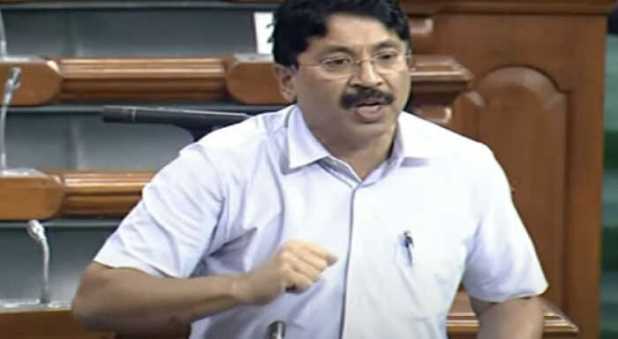
New Delhi, April 4 : Opposition MPs from the DMK, Trinamool, Shiv Sena, and Congress, on Monday unanimously termed the Criminal Procedure (Identification) Bill, 2022 as “draconian” and demanded that it be sent to a Standing Committee for further discussion. The Bill seeks to repeal the Identification of Prisoners Act of 1920, which was introduced with the objective of authorising the taking of measures of convicts and other persons for the sake of identification and investigation in criminal circumstances, as well as the preservation of records, among other things. This current Bill expands the reach of such information as well as the people who can get it. It authorises the National Crime Records Bureau to collect, store, and maintain specified records. It allows for the use of contemporary technology to take and record accurate body measurements. Finger imprints, palm print and footprint impressions, photos, iris and retina scan, physical, biological samples and their analysis are all included in the Bill’s definition of “measurements”. Dayanidhi Maran of the DMK said the bill would lead to the creation of a police state, as it allows policemen to become measurement officers and gives the on Government sweeping powers. Maran said that after the Pegasus software which he alleged was used by the Centre to snoop on people, the current bill is being brought to harass the common person. He said the current bill would lead to its provisions being misused against even ordinary citizens protesting against fuel hike. Citing the Citizenship Amendment Act, which has kept out of its purview Tamil refugees from Sri Lanka, Maran said that following the economic crisis in the island nation “Sri Lankans are pouring into India”. He said that the refugees are being arrested. “How sure are you that my data is being protected. Don’t be in a hurry, stop terrorizing the people. Send it to a Standing Committee,” he said. Mahua Moitra of the Trinamool opposing the bill, said that the original bill in 1920 was brought to “control nationalist forces” and was authorized to store the palm and finger prints of criminals. “It is tragic that an elected Indian government that claims to be more nationalistic, collects more data and has fewer checks and balances,” Moitra said, adding that the bill authorises police and jail officials to take measurements. She said the Unlawful Activities Prevention Act has been misused “and there is fear of this bill being misused”. She said through the bill the parliament was “signing off on much more powers to the state”, and added that the bill has “malafide intentions” and gives the “thanedar carte blanche to take measurements” and harass people. Moitra said the bill places the privacy of individuals at the mercy of the state, and urged the bill be send to a standing committee. Vinayak Bhaurao Raut of the Shiv Sena termed the bill an assault on humanity. He said his party opposes the bill and demanded it be discussed in the Standing Committee. P. V. Midhun Reddy of the YSRCP supported the bill, and said that it would help nab criminals. “This bill is for India to be aligned with global standards and be on par with other countries, and provides necessary statutory backing to go ahead with investigation.” “I have seen cases abroad that with advanced technology are able to nab culprits several years later,” Reddy said, and added that 70 countries are part of a central DNA data base. Reddy said that with the bill, “serial offenders will be deterred from committing heinous crimes.” He said the creation of the National Database on Sexual Offenders (NDSO) in 2018 has greatly helped in curbing criminal offenders. “This bill will help to strengthen law enforcement agencies,” he added. However, he clarified that the bill should not be used as a means for political witch hunt and demanded that the Home Minister should convince the House on that. He said the minister should also assure that the DNA profiling should only be for serious crimes. “How safely is the data being stored, the Home Minister should give assurance,” Reddy added. Supriya Sule of the NCP said that while she is “not totally against the bill”, she “has “concerns” as it violates certain articles of the constitution. She hoped that the data is not misused, and said a good legislation is when it is fair, equal and just. She also voiced concerns about possible leakage of the data. “From a terrorist to a petty thief who has robbed Rs 100, both will be treated the same and their data will be taken,” she added. Kunwar Danish Ali of the BSP said the aftereffects of the bill would be terrible. “Do you want to make India into a police state,” he asked, adding that the bill would allow a police constable to do ID profiling of a family. Saugata Roy of the TMC termed it a poorly drafted bill, while Congress’ Adhir Ranjan Roy said the bill would give carte blanche to police to collect data, and termed it a serious infringement of civil liberties. RN
